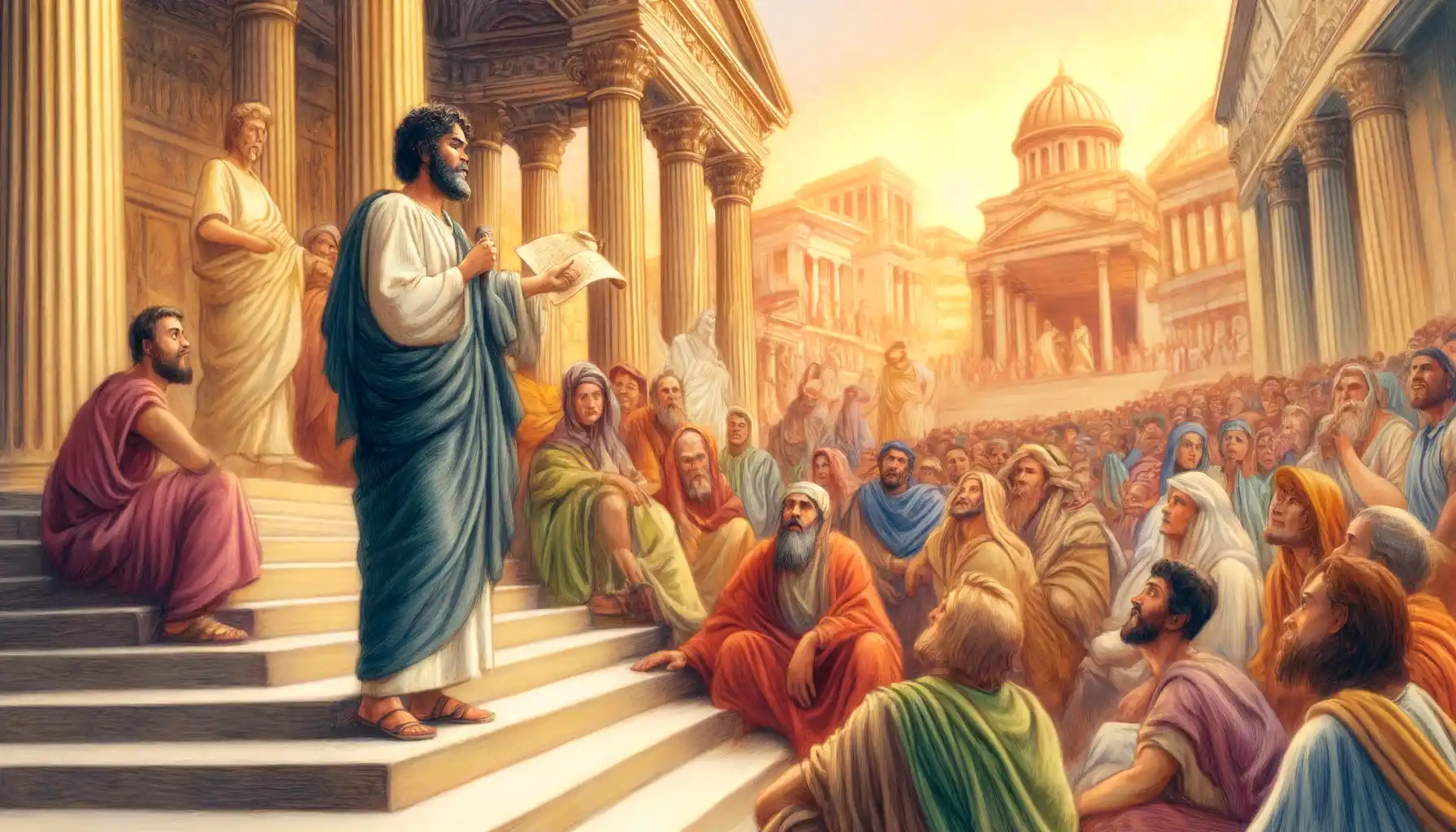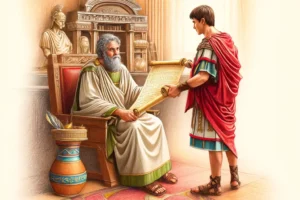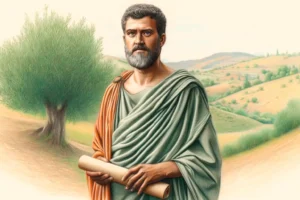
Paul: Architect of Early Christian Theology
Paul, originally known as Saul of Tarsus, is one of the most influential figures in the New Testament. He played a pivotal role in the spread of Christianity among the Gentiles and is credited with writing many of the Epistles.
Quick Facts:
- Conversion: Originally a persecutor of Christians, Paul experienced a dramatic conversion on the road to Damascus, where he encountered a vision of the risen Christ. This event fundamentally changed his life and mission (Acts 9:1-19).
- Missionary Journeys: Paul undertook several missionary journeys across the Roman Empire, establishing Christian communities in major cities and spreading the teachings of Jesus.
- Epistles: Paul authored many New Testament letters (Epistles) to early Christian communities, addressing theological issues, ethics, and church organization. These include Romans, 1 and 2 Corinthians, Galatians, and others.
- Theology: Paul’s theology emphasized themes like justification by faith, the role of Christ as a mediator between God and humanity, and the importance of the resurrection.
- Roman Citizenship: As a Roman citizen, Paul utilized his status to appeal to higher authorities and to spread Christianity across the Roman Empire more effectively.
- Martyrdom: Tradition holds that Paul was martyred in Rome under Emperor Nero’s reign, around the mid-60s AD, making him both a pivotal missionary and a martyr for the Christian faith.
The Apostle Paul, originally known as Saul of Tarsus, is one of the most influential figures in the history of Christianity. His profound theological insights, missionary journeys, and numerous epistles have shaped Christian doctrine and practice. Paul’s transformation from a zealous persecutor of Christians to a dedicated apostle of Christ underscores the power of divine grace and the pivotal role he played in the early church.
Early Life and Background
Paul was born in Tarsus, a major city in Cilicia, now modern-day Turkey, around the beginning of the first century AD. He was a Roman citizen by birth, which afforded him certain legal protections and privileges. Raised in a devout Jewish family, Paul was trained as a Pharisee under the esteemed teacher Gamaliel (Acts 22:3). His education was rigorous, encompassing Jewish law, scriptures, and traditions, which later enabled him to engage deeply with both Jewish and Gentile audiences.
Conversion and Calling
Paul’s dramatic conversion occurred on the road to Damascus, where he intended to arrest Christians. A blinding light and a voice from heaven confronted him, identifying itself as Jesus whom Paul was persecuting (Acts 9:3-6). This encounter radically transformed Paul, leading to his baptism and immediate proclamation of Jesus as the Son of God (Acts 9:20). His conversion story is pivotal, illustrating the transformative power of encountering Christ and serving as a testament to the inclusivity of the Gospel.
Missionary Journeys
Paul embarked on three major missionary journeys, which are chronicled in the Book of Acts. These journeys were instrumental in spreading Christianity throughout the Roman Empire.
- First Journey of Paul (Acts 13-14): Paul, along with Barnabas, traveled through Cyprus and southern Galatia, establishing churches and converting many Gentiles.
- Second Journey of Paul (Acts 15:36-18:22): Paul revisited the churches he had founded, expanded his mission into Europe, and spent significant time in Corinth.
- Third Journey of Paul (Acts 18:23-21:17): Paul focused on strengthening the churches in Asia Minor and Greece, with an extended stay in Ephesus.
These journeys were marked by preaching, teaching, and performing miracles, as well as enduring persecutions and hardships. Paul’s extensive travels and his ability to connect with diverse populations were crucial in establishing a widespread Christian presence.
Theological Contributions
Paul’s epistles form a substantial part of the New Testament and are foundational to Christian theology. Key theological themes in Paul’s writings include:
- Justification by Faith: Paul emphasized that salvation is a gift from God received through faith in Jesus Christ, not by works of the law (Romans 3:28; Galatians 2:16).
- Union with Christ: Paul taught that believers are united with Christ in his death and resurrection, enabling them to live a new life in the Spirit (Romans 6:3-5; Galatians 2:20).
- The Body of Christ: He described the church as the body of Christ, with each member playing a vital role (1 Corinthians 12:12-27; Ephesians 4:4-16).
- The Return of Christ: Paul anticipated the imminent return of Christ and the resurrection of the dead, urging believers to live in readiness and hope (1 Thessalonians 4:13-18; 1 Corinthians 15:50-58).
Paul’s theological insights were deeply rooted in his understanding of the Hebrew Scriptures, yet he reinterpreted them in light of Christ’s death and resurrection. His writings addressed practical issues in the early church, providing guidance on matters of morality, church governance, and interpersonal relationships.
Legacy and Impact
Paul’s legacy is profound and far-reaching. His missionary work laid the foundation for the growth of Christianity beyond Judaism, opening the faith to Gentiles and establishing a diverse and inclusive church. His epistles have been a source of doctrinal clarity, spiritual encouragement, and ethical instruction for centuries. Paul’s ability to articulate the Christian faith in a coherent and compelling manner earned him the title “Apostle to the Gentiles” (Romans 11:13).
Moreover, Paul’s life and writings have had a lasting impact on Christian theology, worship, and practice. His teachings on grace, faith, and the nature of the church continue to influence Christian thought and life. His epistles are central to Christian liturgy and doctrine, forming a critical part of the New Testament canon.
Conclusion
Paul, as the architect of early Christian theology, played a pivotal role in the spread and establishment of Christianity. His transformative encounter with Christ, extensive missionary journeys, and profound theological writings have left an indelible mark on Christian history. Paul’s legacy as a passionate apostle, gifted theologian, and tireless missionary continues to inspire and guide Christians around the world.



